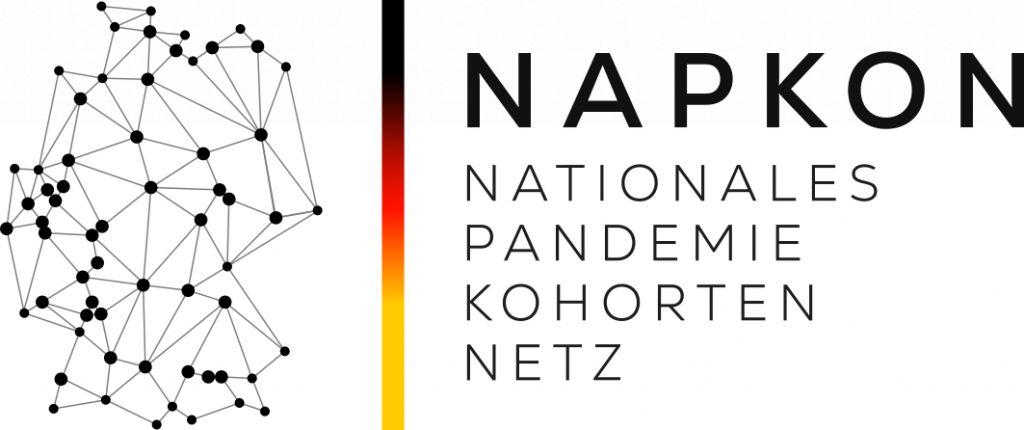

Die „FOSA Pathologie, Neuropathologie, Rechtsmedizin“ stellt sich vor
Die FOSA “Pathologie, Neuropathologie, Rechtsmedizin” vereint drei Fachbereiche mit dem Ziel, innovative Obduktionsverfahren zu entwickeln und die Qualität und Diagnostik von Obduktions- und Biopsieproben zu verbessern.
Schwerpunkte sind dabei die Erarbeitung von Empfehlungen und Qualitätsstandards zur Obduktion und zur Probengewinnung bei COVID-19-Verstorbenen, die Weiterentwicklung hochmoderner Techniken wie z.B. multimodale und minimal-invasive Methoden, die Optimierung der Erregerdiagnostik unter Anwendung von innovativen (postmortalen) Bildgebungs- und „omics“-Verfahren sowie die organspezifische Expertise für Gewebeanalyse und Diagnostik für klinische Studien.
Morphologische Analysen sind ein wichtiges Instrument zum Verständnis von Krankheiten, einschließlich COVID-19. Durch vernetzte, kollaborative Obduktionsforschung werden durch Daten und Biomaterialien aus Pathologie, Neuropathologie und Rechtsmedizin gesammelt sowie gewebebasierte Forschung und Methodenentwicklung betrieben.
Aus dieser Arbeit sind zahlreiche Publikationen hervorgegangen, die verschiedene grundlagenwissenschaftliche und klinische Aspekte von COVID-19 beleuchten, z. B. thromboembolische Ereignisse, Organotropismus, Nachweismethoden von SARS-CoV-2 oder die Infektiosität von SARS-CoV-2 bei der Obduktion.
Publikationen aus NATON (Nationales Obduktionsnetzwerk):
2023
- Heinrich F, Huter T, Mertens S, Lange P, Vering J, Heinemann A, et al. New Postmortem Perspective on Emerging SARS-CoV-2 Variants of Concern, Germany. Emerg. Infect. Dis. 2023;29(3):652–6. doi:10.3201/eid2903.221297.
- Lücke J, Nawrocki M, Schnell J, Meins N, Heinrich F, Zhang T, et al. TNFα aggravates detrimental effects of SARS-CoV-2 infection in the liver. Front. Immunol. 2023. doi:10.3389/fimmu.2023.1151937.
2022
- Wanner N, Andrieux G, Badia-i-Mompel P, Edler C, Pfefferle S, Lindenmeyer MT, et al. Molecular consequences of SARS-CoV-2 liver tropism. Nat Metab. 2022;4(3):310–9. doi:10.1038/s42255-022-00552-6.
- Georg P, Astaburuaga-García R, Bonaguro L, Brumhard S, Michalick L, Lippert LJ, et al. Complement activation induces excessive T cell cytotoxicity in severe COVID-19. Cell. 2022;185(3):493-512.e25. doi:10.1016/j.cell.2021.12.040.
- Jansen J, Reimer KC, Nagai JS, Varghese FS, Overheul GJ, Beer M de, et al. SARS-CoV-2 infects the human kidney and drives fibrosis in kidney organoids. Cell Stem Cell. 2022;29(2):217-231.e8. doi:10.1016/j.stem.2021.12.010.
- Zickler M, Stanelle-Bertram S, Ehret S, Heinrich F, Lange P, Schaumburg B, et al. Replication of SARS-CoV-2 in adipose tissue determines organ and systemic lipid metabolism in hamsters and humans. Cell Metabolism. 2022;34(1):1–2. doi:10.1016/j.cmet.2021.12.002.
- Stillfried S von, Bülow RD, Röhrig R, Meybohm P, Boor P, Böcker J, et al. Intracranial hemorrhage in COVID-19 patients during extracorporeal membrane oxygenation for acute respiratory failure: a nationwide register study report. Crit Care 2022. doi:10.1186/s13054-022-03945-x.
2021
- Wendisch D, Dietrich O, Mari T, von Stillfried S, Ibarra IL, Mittermaier M et al. SARS-CoV-2 infection triggers profibrotic macrophage responses and lung fibrosis. Cell. 2021 Nov 27:S0092-8674(21)01383-0. doi: 10.1016/j.cell.2021.11.033.
- Walsh CL, Tafforeau P, Wagner WL, Jafree DJ, Bellier A, Werlein C et al. Imaging intact human organs with local resolution of cellular structures using hierarchical phase-contrast tomography. Nat Methods. 2021 Dec;18(12):1532-1541. doi: 10.1038/s41592-021-01317-x.
- Wenzel J, Lampe J, Müller-Fielitz H, Schuster R, Zille M, Müller K et al. The SARS-CoV-2 main protease Mpro causes microvascular brain pathology by cleaving NEMO in brain endothelial cells. Nat Neurosci. 2021 Nov;24(11):1522-1533. doi: 10.1038/s41593-021-00926-1.
- Schwabenland M, Salié H, Tanevski J, Killmer S, Lago MS, Schlaak AE et al. Deep spatial profiling of human COVID-19 brains reveals neuroinflammation with distinct microanatomical microglia-T-cell interactions. Immunity. 2021 Jul 13;54(7):1594-1610.e11. doi: 10.1016/j.immuni.2021.06.002 .
- Althaus K, Marini I, Zlamal J, Pelzl L, Singh A, Häberle H et al. Antibody-induced procoagulant platelets in severe COVID-19 infection. Blood. 2021 Feb 25;137(8):1061-1071. doi: 10.1182/blood.2020008762.
2020
- Puelles VG, Lütgehetmann M, Lindenmeyer MT, Sperhake JP, Wong MN, Allweiss L et al. Multiorgan and Renal Tropism of SARS-CoV-2. N Engl J Med. 2020 Aug 6;383(6):590-592. doi: 10.1056/NEJMc2011400.
- Ackermann M, Verleden SE, Kuehnel M, Haverich A, Welte T, Laenger F et al. Pulmonary Vascular Endothelialitis, Thrombosis, and Angiogenesis in Covid-19. N Engl J Med. 2020 Jul 9;383(2):120-128. doi: 10.1056/NEJMoa2015432.
- Matschke J, Lütgehetmann M, Hagel C, Sperhake JP, Schröder AS, Edler C et al. Neuropathology of patients with COVID-19 in Germany: a post-mortem case series. Lancet Neurol. 2020 Nov;19(11):919-929. doi: 10.1016/S1474-4422(20)30308-2.
- Braun F, Lütgehetmann M, Pfefferle S, Wong MN, Carsten A, Lindenmeyer MT et al. SARS-CoV-2 renal tropism associates with acute kidney injury. Lancet. 2020 Aug 29;396(10251):597-598. doi: 10.1016/S0140-6736(20)31759-1.
- Cantuti-Castelvetri L, Ojha R, Pedro LD, Djannatian M, Franz J, Kuivanen S, van der Meer F et al. Neuropilin-1 facilitates SARS-CoV-2 cell entry and infectivity. Science. 2020 13;370(6518):856-860. doi: 10.1126/science.abd2985.
